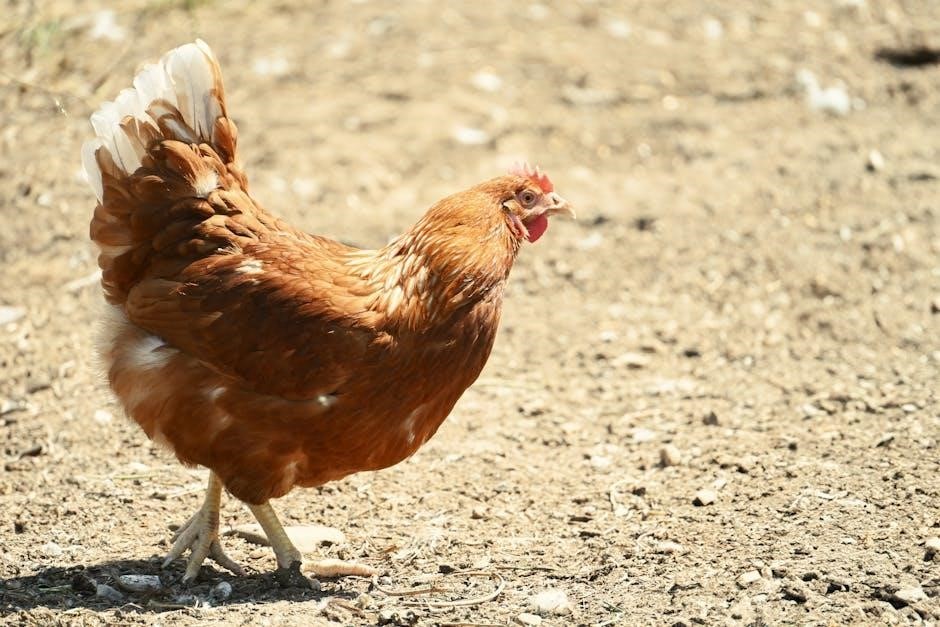
Farming in OSRS is a versatile skill where players cultivate crops, herbs, and trees, offering resources, profit, and access to high-level content while enhancing gameplay.
1.1 What is Farming in OSRS?
Farming in Old School RuneScape is a gathering skill where players plant seeds and harvest crops, including vegetables, fruits, herbs, and trees. It involves managing resources, protecting crops from disease, and optimizing growth. This skill allows players to produce food, herbs, and materials for crafting, cooking, and other skills, making it a versatile and essential part of gameplay.
1.2 Importance of Farming Skill
Farming is crucial for crafting, cooking, and other skills, providing essential resources. It offers profitable opportunities through crop sales and access to high-level content like the Farming Guild. Mastering farming enhances gameplay versatility, allowing players to grow rare herbs, trees, and fruits. Achieving high levels unlocks exclusive benefits, making it a rewarding skill for both progression and gameplay satisfaction.
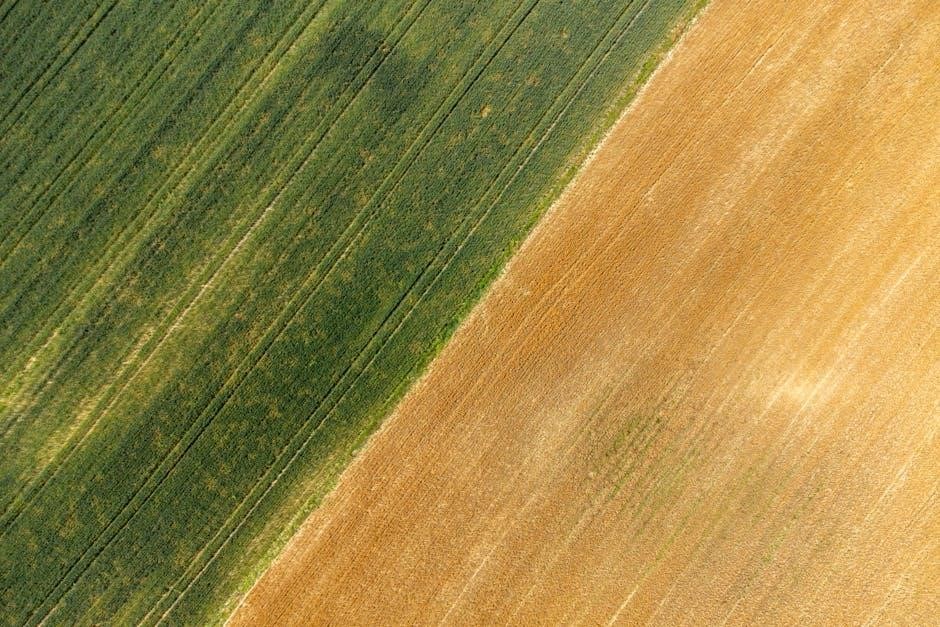
Early Levels (1-15)
Focus on low-level methods and early progression by completing quests for boosts. Start with seeds like potatoes and carrots to establish your farming routine and foundation.
2.1 Starting with Potatoes and Carrots
Begin your farming journey by planting potatoes and carrots, as they are ideal for early levels. These crops grow quickly and require minimal resources. Start at the farming plot south of Falador, using a trowel to plant seeds. Potatoes and carrots take about 4 minutes to mature, providing a steady supply of food and early experience. Focus on these crops to build your foundation before progressing to more complex farming activities.
2.2 Completing Quests for Early Boosts
Completing specific quests like Recruitment Drive and Rune Mysteries provides substantial early boosts to your Farming level, quickly elevating you to around level 30. These quests not only accelerate your progress but also unlock essential areas such as the Farming Guild, where you can begin farming contracts and access higher-level content.

Allotment Farming
Allotment farming in OSRS allows players to grow crops like potatoes, carrots, and onions, providing essential resources and early game profit while leveling up the skill.
3.1 Best Crops for Allotments
Potatoes, carrots, and onions are ideal for early levels due to their fast growth and high XP rates. As players progress, strawberries become a top choice for their superior XP and consistent demand. Higher-level crops like watermelons and pineapples offer increased profitability but require more time and resources to cultivate effectively.
3.2 Protecting Your Crops
Protecting crops is crucial to prevent damage from pests and diseases. Using scarecrows in allotments deters birds, while regularly cleaning up weeds reduces the risk of infestations. Monitoring crop health and addressing issues promptly ensures maximum yields and minimizes losses, making protection a key part of successful farming in OSRS;
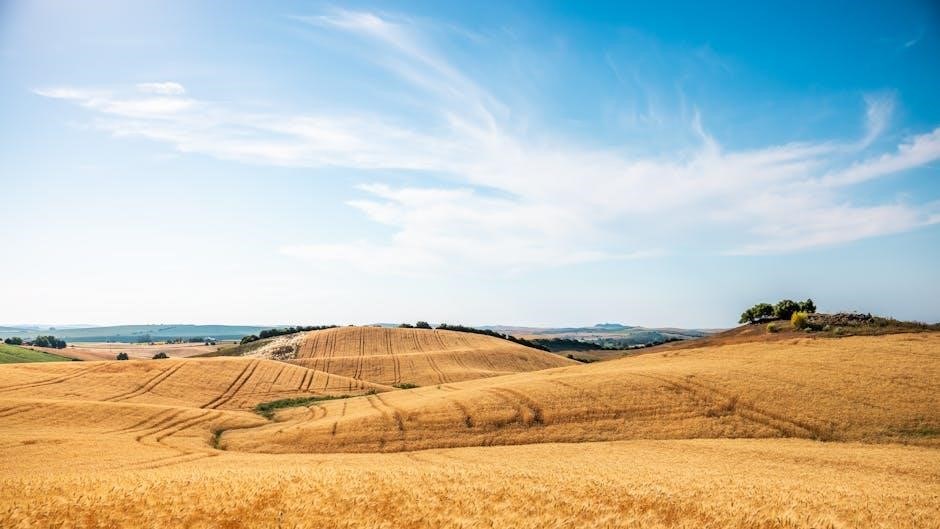
Tree Farming
Tree farming in OSRS involves planting and harvesting trees for valuable wood and resources. It offers versatile training, from low-level trees to high-profit exotics like teak and mahogany.
4.1 Planting and Harvesting Trees
Planting and harvesting trees in OSRS is a core part of farming. Players use seeds, a trowel, and watering can to plant saplings, which grow over time. Regularly checking on trees is essential to ensure healthy growth. Once mature, trees can be chopped for logs, providing valuable resources and experience. This method is a key part of training and profit-making in the farming skill.
4.2 Teak and Mahogany Trees
Teak and mahogany trees are high-level farming options, offering significant XP and profit. They take longer to mature but provide exceptional rewards. Planting these trees requires higher-level seeds and careful maintenance. Once harvested, they yield valuable logs for construction or fletching. These trees are a cornerstone of late-game farming strategies, balancing time investment with substantial returns in both experience and gold.
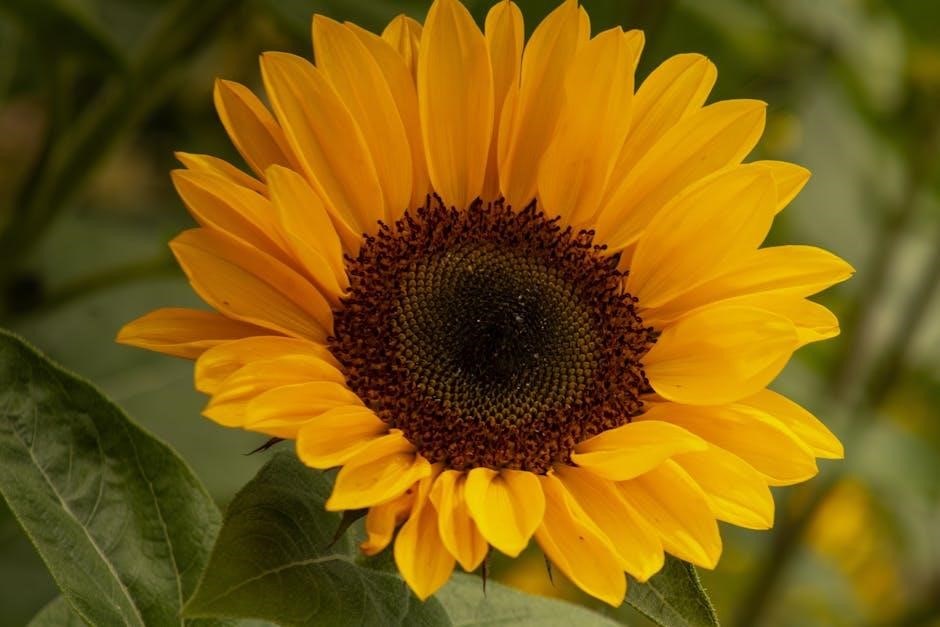
Herb Farming
Herb farming focuses on cultivating herbs like ranarr and torstol, which are essential for potion-making. Regular patch maintenance ensures healthy growth, rewarding players with both XP and valuable resources.
5.1 Best Herbs to Grow
Herbs like ranarr, torstol, and snapdragon are highly sought after for their XP and profit. Ranarr weeds offer excellent mid-level gains, while torstol provides the highest XP. Snapdragon and cadantine are also profitable choices. These herbs are in high demand for potion-making, making them essential for both leveling and earning in-game currency. Planting the right herbs maximizes efficiency and rewards in OSRS farming.
5.2 Managing Herb Patches
Efficient herb patch management is crucial for maximizing yields. Use high-tier compost like super or ultracompost to boost growth rates and reduce disease risk. Regularly inspect patches to prevent weeds and ensure healthy growth. Protective items like scarecrows or herb gloves can further enhance productivity. Consistent care ensures optimal XP and resource gains, making herb farming both profitable and efficient in OSRS.
Fruit Tree Farming
Fruit tree farming offers high XP rates and valuable resources. Planting calquat and other special trees provides unique rewards and enhances gameplay diversity in OSRS.
6.1 Planting and Caring for Fruit Trees
Planting fruit trees like calquat and others requires specific patches and high-tier seeds. Regular watering and protection from disease are crucial for optimal growth. Ensure the patch is well-maintained, and check the tree’s health daily. Harvesting yields valuable fruits and seeds, providing both resources and XP, making it a rewarding long-term investment in your OSRS farming journey.
6.2 Calquat and Other Special Trees
Calquat and other special trees, like papaya and Hespori, offer high XP and valuable resources. Planting these requires specific seeds and care. Calquat trees are particularly lucrative, yielding rare fruits used in high-demand potions. The Hespori tree, obtained from the Hespori dungeon, provides unique rewards. Special trees are a key part of advanced farming strategies for both profit and efficient XP gains.
High-Level Farming (80-99)
High-level farming focuses on maximizing XP and profit using advanced seeds like Ranarr and Snapdragon. The Farming Guild offers exclusive benefits, making late-game farming highly efficient and rewarding.
7.1 Farming Guild Benefits
- Access to exclusive seeds like Ranarr and Snapdragon for high XP and profit.
- Enhanced XP rates within the guild to accelerate progression.
- Unique patches for high-tier herbs and trees not available elsewhere.
- Teleportation options to key farming locations, saving time.
- Community features for sharing tips and strategies, enhancing efficiency.
7.2 Using High-Level Seeds
High-level seeds, such as Ranarr and Snapdragon, offer superior XP rates and profits. These seeds unlock at higher farming levels and are essential for efficient skill progression. They require access to specialized patches, often found in the Farming Guild. Planting these seeds optimizes time and resources, making them a cornerstone of reaching 99 farming. Consistent use ensures rapid growth and maximizes returns.
Contracts and Daily Tasks
Contracts and daily tasks provide structured goals, enhancing efficiency. Players can complete specific farming objectives for rewards, boosting progress and resource management while maintaining consistent skill growth.
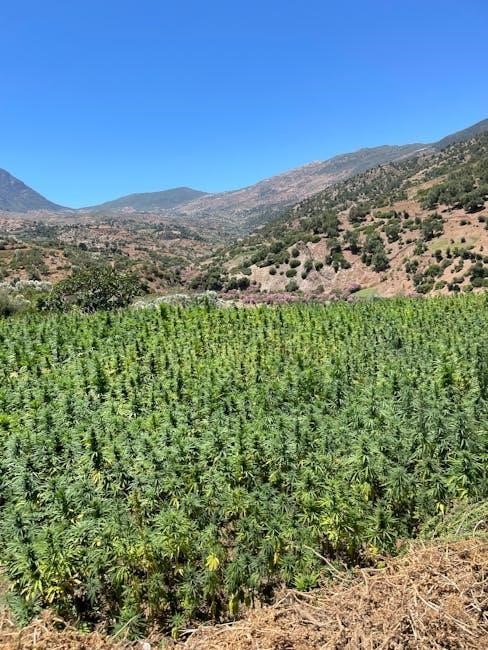
8.1 Completing Farming Contracts
Farming contracts involve planting specific crops, such as calquat, herbs, or teak trees, to earn rewards. These tasks provide valuable experience and resources, aiding skill progression. By focusing on high-demand crops, players can efficiently complete contracts, unlocking new seeds and enhancing their farming efficiency while contributing to overall growth and profitability in the game.
8.2 Daily Tasks for Efficiency
Daily tasks in OSRS farming involve activities like planting high-value seeds, tending to crops, and harvesting resources. Regular farm runs ensure consistent progress, while managing resources effectively optimizes time. Players can also utilize the Farming Guild’s daily opportunities to enhance efficiency and speed up their journey to level 99, making the most of their in-game time.
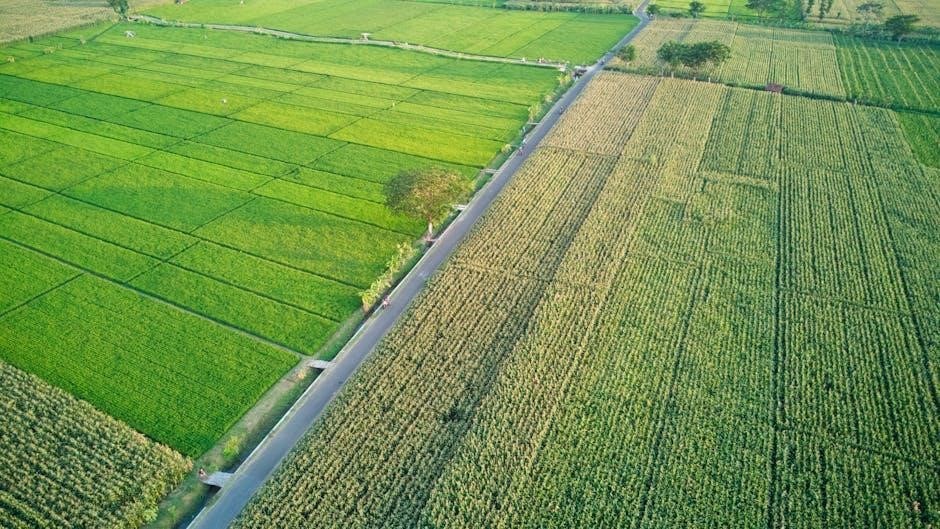
Making Profit from Farming
Selling high-demand crops like herbs, trees, and rare seeds for GP can generate significant profit. Players can sell directly to other players or through the Grand Exchange.
9.1 Selling Crops for GP
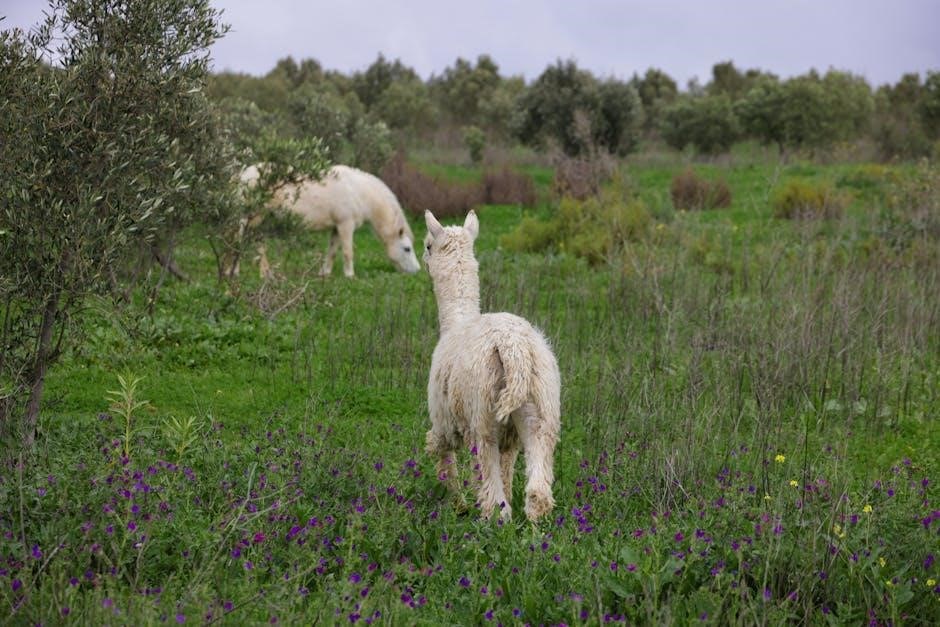
Selling crops for GP is a straightforward way to profit. Players can sell their harvested crops, such as high-demand herbs, trees, and rare seeds, through the Grand Exchange or directly to other players. Monitoring market prices ensures the best returns. Focusing on crops like ranarr weed, snapdragon, and teak logs often yields higher profits due to their consistent demand in the OSRS economy.
9.2 Most Profitable Crops
The most profitable crops include herbs like ranarr weed and snapdragon, which are in high demand for potions. Teak and mahogany logs are also highly valuable for construction and fletching. Focusing on these crops can yield significant profits, especially when harvested at higher levels. Additionally, specialty crops like calquat and hespori seeds are sought after for their rarity and utility in high-level recipes.
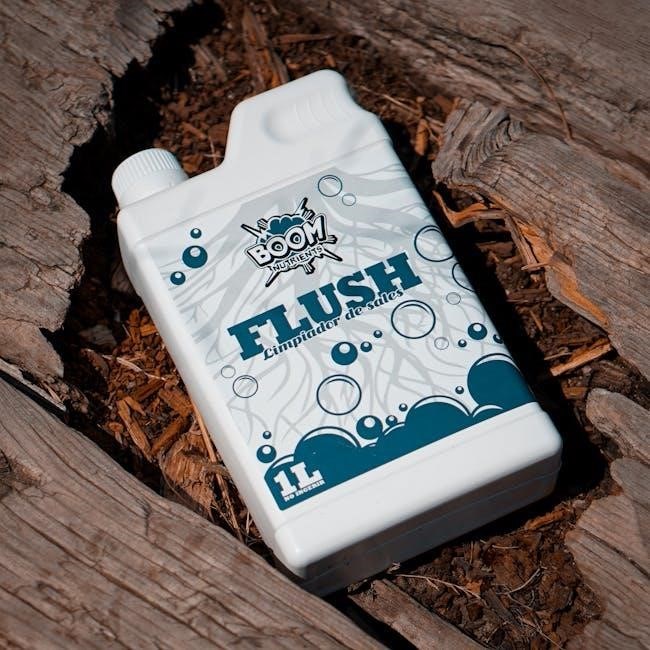
Ironman Tips
Ironman players must focus on self-sufficient farming, carefully managing seeds, and prioritizing high-value crops to maximize efficiency without external resources.
10.1 Self-Sufficient Farming
Ironman players must focus on self-sufficient farming by planting their own seeds, reusing resources, and planning crops to avoid reliance on external supplies, ensuring efficiency and progress in the skill without external aid.
10.2 Managing Resources Effectively
Ironman players should prioritize resource management by planning crop plantings, tracking growth stages, and minimizing waste. Reusing seeds, composting, and efficiently allocating farm plots ensures maximum productivity. Tools like the farming timer can help monitor progress, while focusing on high-value crops reduces costs and maintains steady skill advancement, making farming sustainable and efficient for Ironman accounts.
Reaching 99 Farming requires patience and consistent effort, offering significant rewards in GP, resources, and satisfaction. Stay dedicated to unlock the full potential of your farming journey.
11.1 Final Tips for Reaching 99
Consistency is key; set a daily routine to maximize progress. Use high-level seeds like calquat and teak for faster XP. Manage resources efficiently, especially on Ironman accounts. Unlock the Farming Guild for exclusive benefits and contracts. Regularly complete daily tasks to boost efficiency. Stay patient and persistent—reaching 99 requires time but offers substantial rewards in both GP and gameplay versatility.
11.2 Staying Consistent
Consistency is crucial for progressing in Farming. Create a daily schedule to plant seeds, check patches, and harvest crops. Regularly complete contracts and tasks to maintain steady growth. Avoid burnout by balancing AFK training with active play. Stay committed, as even small daily efforts accumulate over time. Persevere through setbacks and enjoy the long-term rewards of a high-level Farming skill.